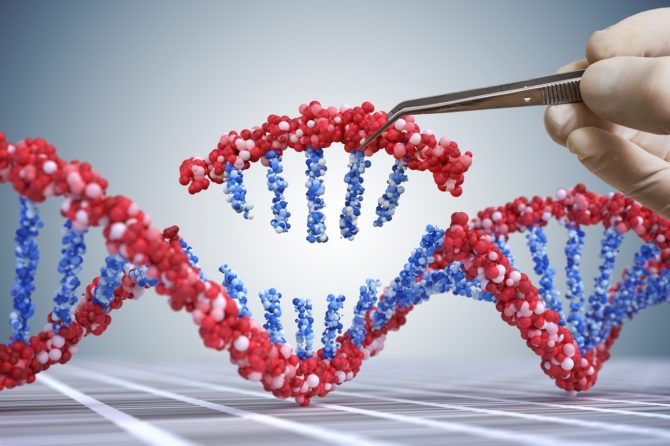
Gene Therapy Advancements in Addiction Therapy
Addiction is a disease. We study it, we treat it… so why can’t we cure it?
Much like any disease, addiction is a product of heredity and environment, and its effects are amplified and complicated by the introduction of drugs to the body (and subsequently the mind). For centuries, we have been focused on changing our habits to curb the temptation of substance use; we alter our behavior, we avoid the pitfalls of past mistakes, and we seek counseling to navigate these decisions.
But what if we can also concentrate on the genetic component to addiction?
Gene therapy is pioneering the next chapter in substance treatment. It identifies the disease of addiction on a biological level and engineers news ways to work with our own bodily chemistry to counteract the disastrous impact that drugs can have on those trapped in the whirlwind of regret and relapse.
What Is Gene Therapy?
The human body contains over 20,000 genes, and these consist of deoxyribonucleic acids (DNA). Most of us associate DNA with our physical traits: how tall we are or what color our eyes may be. But genetics function in our system long after they determine how we’re born. DNA creates a system that allows us to process and build proteins and enzymes, which give us the energy we need to survive.
But when our genes are damaged, disease takes over.
Gene therapy is a way to fix broken DNA networks by adding or repairing strands of genetic material to aid in the proper functionality of the human body. Think of it as a faulty pipe in your home; you must identify the cause of the issue – let’s say it’s rust. Once you have identified the source of the problem, you can patch up the corroded pipes to keep your water flowing unimpeded.
In this analogy, rust is the disease and gene therapy is the cure. So how can this vanguard process help alleviate addiction? Read on…
Brain Science
The human mind is the supercomputer of our experiential life. It dictates how we perceive the world, how we process a myriad of stimuli, and what emotions and reactions we glean from our daily interactions.
But addiction can impede the healthy ways in which the brain should process all of its input. When the prefrontal cortex fails to act as the voice of reason, it can be overcome with urges to behave badly, to succumb to our id, and to ingest substances that satisfy its every craving.
Drugs trigger the release of brain chemicals that provide the user with a temporary rush of pleasure. When unregulated, our nervous system demands more and more of this feeling, which leads to a state of addiction. But gene therapy can reroute these neurochemicals by maintaining optimal cellular function. In short, genetics can be manipulated to favor healthy behavior over destructive whims.
Case Study In Point
Let’s move from the theoretical realm to an empirical victory in the lab. One recent study administered an enzyme called butyrylcholinesterase (BChE) to the skin cells of various mice. The results were groundbreaking.
The compound succeeded in blocking the mice’s desire to seek out cocaine, making it remarkably effective in staving off addictive behavior. This alone is noteworthy, but the enzyme also proved helpful in preventing overdoses. The mice were treated with BChE were able to break down dangerous amounts of cocaine in their respective bloodstreams. If they hadn’t been given this gene therapy, they would have surely overdosed, but the BChE helped their systems survive to face another day.
Gene Therapy Applications Moving Forward
Relapse is a storm cloud that hovers over every recovery. The anxiety over reverting to one’s previous ways hangs heavily over a person, occupying their every thought and standing in the way of achieving sobriety.
But scientists have been working to engineer stronger strains of BChE that are more effective in blocking the effects of addictive drugs. This translates into better results when it comes to blocking overdoses, but it also supports a longer-term recovery plan. If you systematically don’t crave a drug, and get less and less of a high from repeated usage, then you are more likely to avoid relapse.
The positive results from the laboratory testing of mice show that BChE treatments haven’t had any residual harmful results or side effects. The enzyme has proven to be long lasting, subduing addictive behavior for potentially years after the gene therapy has been administered in primate subjects.
But that’s just it: this particular gene therapy hasn’t been tested on humans… yet. The lab testing is promising thus far, but by no means conclusive. Experts need to understand how to apply the successes of BChE to enzymes that break down drugs other than cocaine. After all, people struggling with addiction often turn to a plethora of substances, sometimes in combination with one another. Gene therapy needs to become both specialized and generalized before humans can benefit from its advancements.
In the meantime, we’re here to help. We have studied the effects, causes, dynamics, and dangers of substance use exhaustively and we are crafting our own solutions to the problems plaguing those afflicted by addiction.
Instead of waiting around for a magic cure that may still be years from materializing, take charge of your health today. Contact one of our caring professionals to discuss your unique situation and together we will engineer a brighter tomorrow.
Leave a reply